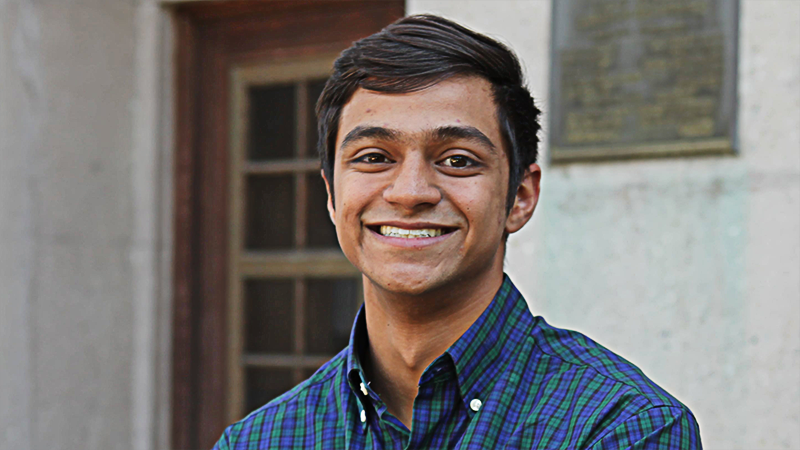Ph.D. Student Receives Department of Energy Computational Science Graduate Fellowship

Shehan Parmar
Established in 1991, the fellowship was created to train the top minds in computational science. As a fellow, Parmar will receive an annual stipend of $38,000 for up to four years, full coverage of tuition and associated fees, as well as a $1,000 professional development allowance.
In addition, fellows will participate in a 12-week practicum, working in a DOE laboratory and learning new skills on how to transform their scientific interests into research that is critical for the country.
“I am incredibly honored and excited to be part of the Computer Science Graduate Fellowship community,” Parmar said. “The Department of Energy operates some of the most powerful supercomputers in the world to tackle complex science and engineering problems. During my time as a fellow, I hope to gain a multidisciplinary skill set that will prepare me to use computational science to make a meaningful impact in the world.”
Parmar got his bachelor’s degree in astronautical engineering with a minor in physics from USC in 2019. He investigated thermal and catalytic decomposition mechanisms of ionic liquids using molecular dynamics simulations and density functional theory calculations at the USC Collaborative High Altitude Flow Facility.
“I am incredibly honored and excited to be part of the Computer Science Graduate Fellowship community,” Parmar said.
Prior to joining the UCLA Samueli School of Engineering in 2020, Parmar worked at the Air Force Research Laboratory briefly as a spacecraft propulsion consultant, developing a reduced-order model for green monopropellant thruster technologies.
Since 2020, Parmar has worked under the tutelage of UCLA mechanical and aerospace engineering professor Richard Wirz, researching the development of multiscale, multiphysics models for predicting the lifetime and performance of electrospray thrusters — a novel form of electric spacecraft propulsion.
“I was fascinated by professor Wirz’s research and immediately drawn to the challenging engineering problems he and his group were working on — from advancing electric propulsion technologies and improving high-performance fusion materials to designing cancer therapy technologies,” Parmar recalled. “In just the past year, I’ve learned so much about state-of-the-art computational and experimental techniques that are being used today.”
The advent of electrosprays will enable space exploration missions such as the Laser Interferometer Space Antenna and Habitable Exoplanet Observatory in the future.
To complete his doctoral program, Parmar will address how particle and continuum simulation techniques can be coupled together to better understand failure mechanisms during electrospray operation. High-fidelity simulation results will inform critical design decisions and improve overall technology readiness levels for electrospray technologies.
In addition to his research, Parmar is an active member of the UCLA First-Generation Graduate Student Council, through which he helps build a community and advocate for other first-gen graduate students.
Previous UCLA students who have received the DOE fellowship are Tasha Frazier M.S. ’01 — a chemical engineer who participated in the program from 2000 to 2001 — and Santiago Vargas, who is currently pursuing a Ph.D. in theoretical and computational chemistry at UCLA and is in his second year as a fellow.
The 2021-2022 class of computational science graduate fellows is the largest in the program’s history and brings the total number of students who have received the fellowship to more than 550.
Sara Hubbard contributed to this story.
